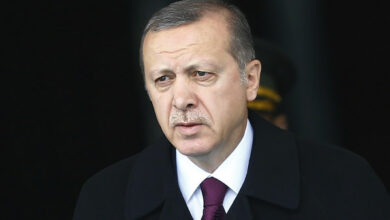
EU anti-terror chief: very young Europeans joining ISIS
The Islamic State of Iraq and Syria (ISIS) group is recruiting a growing number of very young men and women from Europe despite battlefield setbacks, EU counter-terror chief Gilles de Kerchove has told AFP.
In an interview, de Kerchove also said there was no intelligence to show that militants were slipping into Europe among flows of migrants, even if he said they were profiting from people smuggling.
Q: ISIS has just suffered a series of military setbacks in Syria. Is it still a threat to Europe?
A: Daesh (the Arabic acronym for ISIS) is very resilient despite the setbacks. It continues to attract. There are still young Europeans who are leaving. They are increasingly young and there are many more women. The European Union is mobilized and the Paris attacks (in January) increased this mobilization, but that didn’t change things. We must continue the efforts because the threat remains serious.
Q: How many Europeans have joined the fight in Syria?
A: 4,000, according to our estimates.
Q: Are there fears the group is using migrant trafficking networks to slip militants into Europe?
A: Daesh is involved in these networks, but as a source of financing. The trafficking is very lucrative. But we have no intelligence to say that terrorists use these networks. We should not conflate the two because it’s dangerous. The asylum seekers are persecuted people. Illegal immigrants are coming because they want a better life. They are not terrorists. They are not criminals.
Q: So what is the source of the threat to Europe?
A: It comes from European fighters who have a passport and have not been identified, but also from residents in Europe who are radicalized on the Internet. For this reason, we must develop de-radicalization programs.
Q: How can the EU stop the recruitment of militants for Syria and their return to Europe?
A: One of the ways is to reinforce checks on EU nationals at the external European borders. Article seven of the Schengen border code allows for systematic checks on the basis of indicators of common threats. These indicators have been defined and approved, but they are confidential and must remain so.
Q: The EU has an action plan to fight radicalization. How far along are we in implementing it?
A: We anticipated the threat quite well. I raised the problem of foreign fighters in January 2013 in an analysis of the Arab Spring’s consequences for EU security, and a series of measures was adopted in June 2013. But we must maintain the pace. There remains much to do, especially with the Internet. The member states expect the European Union to intervene with Internet giants to remove illegal sites, carry out checks and develop a counter-narrative to prevent recruitment.
Alarabiya




